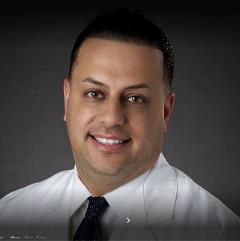Find an Oncologist
White Blood Cell Count: What You Need to Know
White blood cells, also known as leukocytes, help protect the body against infections, bacteria, viruses and diseases. These essential part of the immune system are produced in the bone marrow and are present in the blood and lymph tissue. White blood cells (WBC) come in different types, and the blood normally contains a certain percentage for each type. This is what doctors check when they request tests that measure a person’s WBC count.
Why Do Doctors Check Your WBC Count?
The WBC count is usually included in a test that measures your complete blood count (CBC). A low white blood cell count or a high blood cell count may indicate an infection or an undiagnosed condition such as a blood disorder, an autoimmune diseases or an immune deficiency. The WBC count can help doctors detect and provide treatment for these potential conditions as well as help monitor the effectiveness of radiation treatment or chemotherapy for cancer patients.
What Is the Normal WBC Count?
People’s WBC count may vary depending on their age. Infants usually have a higher WBC count which gradually decreases as they get older. The table below shows the normal WBC ranges per microliter of blood (mcL).
| Age range | WBC count (per mcL of blood) |
|---|---|
| Newborns | 9,000 to 30,000 |
| Children below 2 years old | 6,200 to 17,000 |
| Children over 2 years old and adults | 5,000 to 10,000 |
Symptoms of an Abnormal WBC Count
An abnormal WBC count may either be lower or higher than the normal range. The common symptoms of a low WBC, also known as leukopenia, include body aches, chills, fever and headaches. If you have these symptoms, please schedule an appointment with your doctor and he/she may recommend a WBC count.
On the other hand, a high WBC count, also known as leukocytosis, usually doesn’t cause symptoms, although the underlying condition that’s causing it may show its own signs.
Risk Factors of an Abnormal WBC Count
A low WBC count may be triggered by the following factors or conditions:
- Autoimmune disorders
- Bone marrow damage or disorder
- Certain medications (i.e., antibiotics)
- Human immunodeficiency virus (HIV)
- Liver and spleen diseases
- Lupus
- Lymphoma
- Radiation therapy
- Severe infections
Meanwhile, a high WBC count may be triggered by the following factors or conditions:
- Asthma
- Certain allergies
- Certain infections (i.e., tuberculosis)
- Certain medications (i.e., corticosteroids)
- Exercise
- Inflammatory conditions (i.e., arthritis and bowel disease)
- Leukemia
- Pregnancy
- Smoking
- Stress
- Tissue damage
- Tumors in the bone marrow
How to Prepare for a WBC Count
First, you have to schedule an appointment with your doctor to get a test request and then schedule an appointment with the laboratory for blood extraction. Certain medications may either lower or increase your WBC count, so please let your physician know if you’re under medication. Some of the drugs that may interfere with your WBC count results are as follows:
- Antibiotics
- Anticonvulsants
- Antihistamines
- Chemotherapy medication
- Clozapine
- Corticosteroids
- Diuretics
- Heparin
- Quinidine
- Sulfonamides
Final Thoughts
If your laboratory test results show that you either have a low or high WBC count, your doctor may recommend a treatment plan and may also recheck your WBCs from time to time. But if your WBCs are within the normal range, great. Just keep doing things that can help boost your immune system and keep you healthy, such as eating fruits and vegetables, getting enough sleep, limiting your sugar intake, exercising regularly, managing your stress levels and staying hydrated. Have a great day ahead!
Sources:
National Cancer Institute
Healthline


